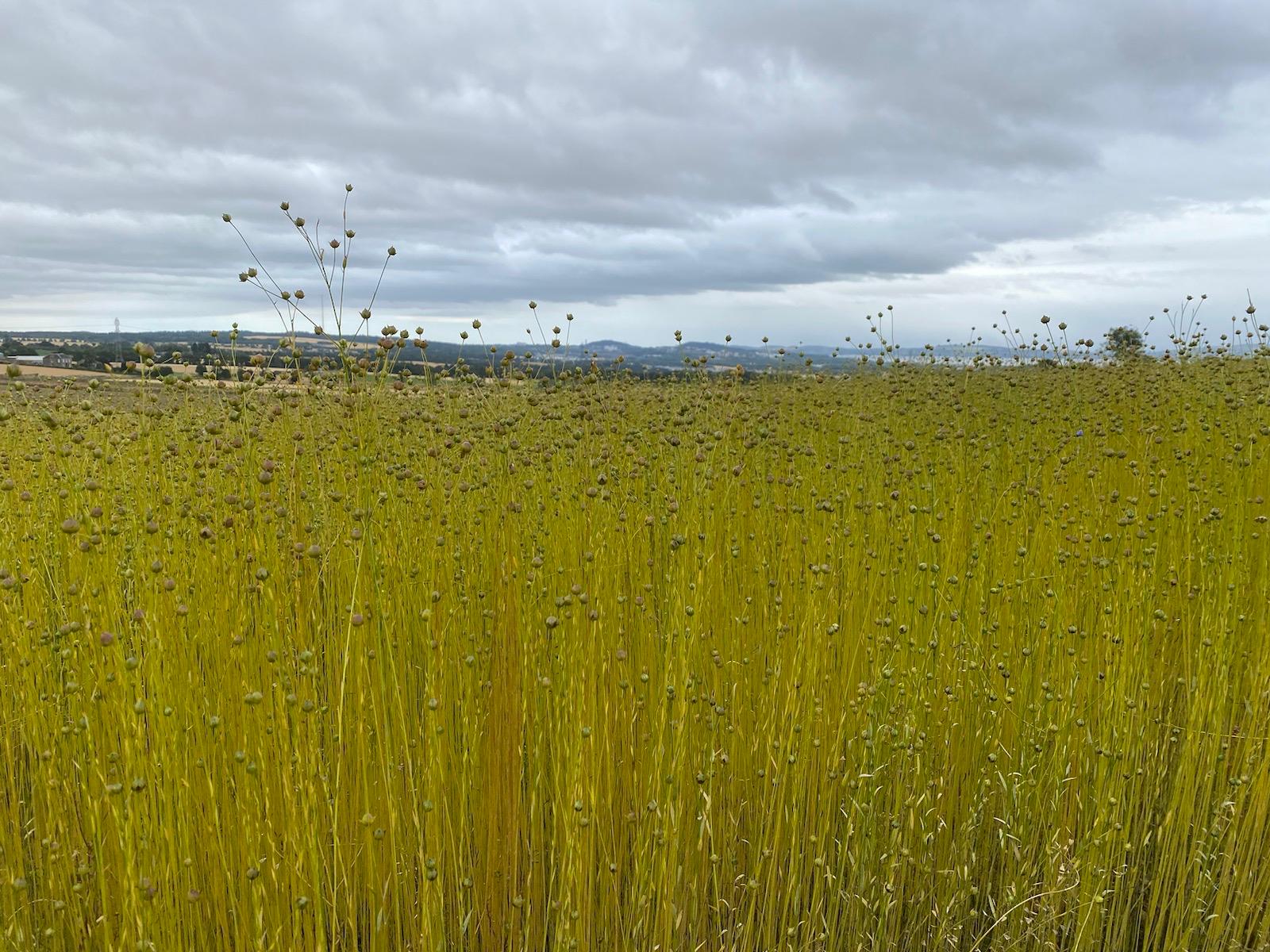Researchers from The James Hutton Institute assess the potential of flax as an industrial crop
As far back as the 1970s The James Hutton Institute (then the Scottish Crop Research Institute) was involved in flax production, a crop that used to be grown widely in Scotland but fell out of favour due to competition from cotton and synthetic fibres.
However, thanks to increasing awareness of the negative aspects of fast fashion, there is a new interest in natural and sustainable fabric.
Flax is a low carbon input, high carbon offtake crop that can help regenerate the textile industry. It has a low nitrogen fertilizer requirement so fits well with the move towards lower input farming.
In 2023, Soil Association Scotland brought together organisations and individuals in a Flax Field Lab. Commercial flax seed is scarce in the UK, but Elsoms supplied a limited number of seed of three varieties, Delta, Tango and Avia, to three trial farms and 25 community sites across the country to re-assess the potential of flax as an industrial crop.
The data from 2023 showed that all three varieties had agronomic merit, but further work was required to understand how these varieties respond under different environmental conditions and to different agronomic treatments.

In 2024, they were trialled again at growers’ sites and at the Hutton’s Balruddery Farm, where scientists tested several agronomic treatments including different sowing densities, nitrogen treatments (fertiliser vs undersown clover) and a comparison of ploughed and direct drilled seed.
Results to date show differences between the varieties and between agronomic treatments in flax height, yield, weed control, and disease incidence. Interestingly, clover undersowing produced longer stems, which could improve ease of processing. With no commercial flax industry in the UK, there is no specialist harvesting equipment, so the trial crops are harvested by hand.
The fibre quality characteristics are being tested by Fantasy Fibre Mill in collaboration with Heriot Watt University and a second field trial will test the reproducibility of these results.
Blog by Media Officer, Joyce Reid, joyce.reid@hutton.ac.uk, or on 07931 551 988
Disclaimer: The views expressed in this blog post are the views of the author, and not an official position of the institute or funder.
